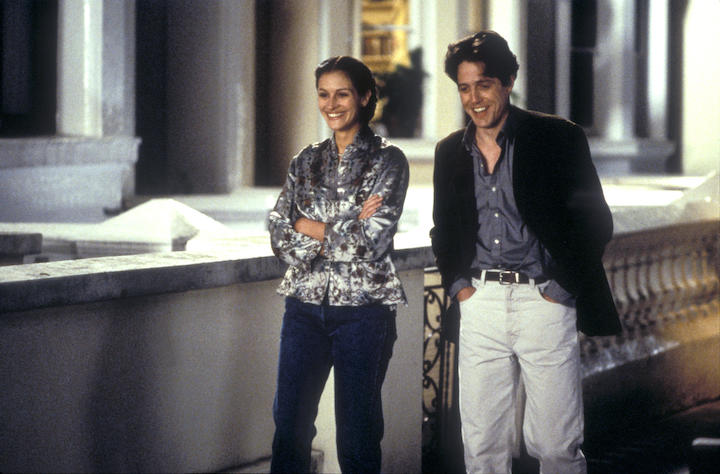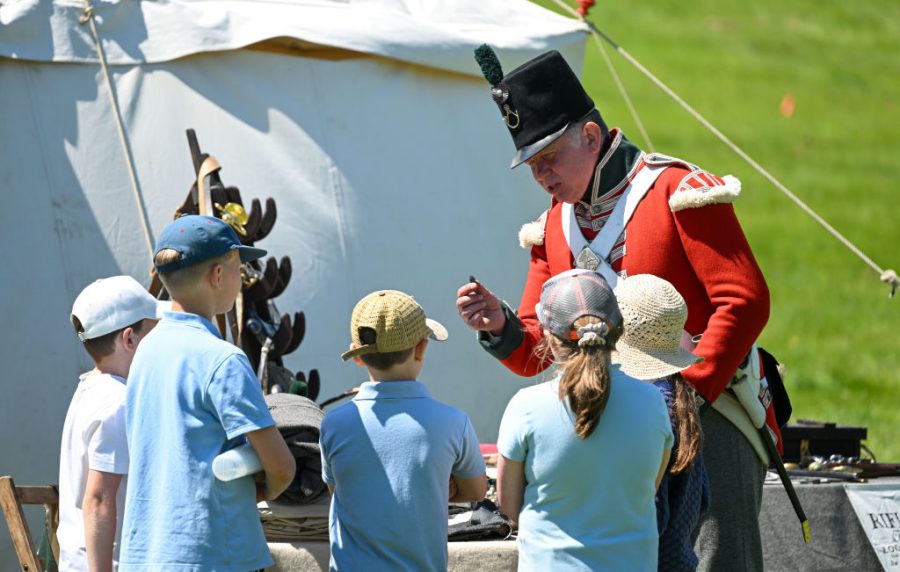Does anyone else miss the nineties terribly? Everything seemed simpler in that pre-internet era of The Fast Show, the band Suede and heaving nightclubs. Twenty-five years ago today, one of the defining films of that decade – Notting Hill – held its premiere in London. In the years since, we’ve made progress, of sorts: technology has improved immeasurably and we’re all living longer. But are we any happier? I’m not convinced.
It’s true that the 1990s weren’t perfect: there was a sprinkling of identity-based grievance and envy, but it was still safely contained in the universities. We genuinely thought experts knew what they were doing. There were also vital cultural vents, like TV comedy, and our playful pop scene thrived; now, it’s all bunged up. And we wonder why youngsters seem so barmy.
It’s no surprise that most people view their own twenties as the time when things in general were better
What do I miss about the 90s? I miss the old folk back then. As Morrissey sings in his song ‘Oboe Concerto’, ‘the older generation have tried, sighed and died – which pushes me to their place in the queue’. Those older generations were often either fascinating or funny. The war didn’t seem so far off, and those who had lived through that period had a reassuring formality. They knew some of the things, like gratitude, duty, responsibility, in their bones; too many of us have now forgotten these things.
I can’t tell you how much fun it was to rebel then, anchored in the knowledge that there was the safety net of a secure society. Back in the 90s, we had a general, unspoken expectation and understanding that however mad things got, they couldn’t and wouldn’t get too mad. Bad things were usually noticed and stopped. In our present era – child sex changes, Jews frightened to walk the streets of London – that seems totally lost.
And the Noughties? What lingers in my mind was the lack of prissiness, an absence of feigning concern and care. Simon Cowell telling X Factor auditionees ‘you are mad, and you cannot sing’. Bo’ Selecta! and its incredibly crass playground humour. There was a great feeling of untightening after the gigantic cultural bum clench of Thatcher, the poll tax, and section 28.
The Noughties were a time when it felt like we were allowed to have fun again – that we were grown up enough to be childish. Of course, let’s not forget that Tony Blair was blowing apart the foundations of society on the down-low, but nobody much noticed or cared. The bill only arrived later.
To my regret, I started getting a bit sniffy about the casual callousness of Noughties’ culture. But by God – if it’s a choice between that and a woman-hating bloke with boobs playing the piano with his penis and being clapped by a ‘progressive’ Channel 4 audience? Give me Jade Goody or Jimmy Carr’s Distraction any day.
I’m not alone in my nostalgia. A recent YouGov poll has revealed that ‘Britons tend to think that several recent decades were better than the current era, particularly the 1990s and 2000s, of which 57 per cent and 60 per cent respectively say life was better. Another 51 per cent say the same for the 2010s, and a plurality also say so of the 1980s’.
The polling finds a strong correlation between the age of the respondents and the rose-tinted decade of the past they prefer. It’s no surprise that most people view their own twenties as the time when things in general were better. The sheer vigour of youth only becomes apparent when it has passed: yes, you may have been miserably depressed but you were energetically miserably depressed. You didn’t have to summon your physical resources, they were just there, on tap. I find personally that any dance record made from about 1988 to 1993, my own early twenties – even ones I hated or barely registered at the time – now act like a galvanic stimulus to my weary frame.
But still, I think there’s a difference between the eternal distance separating the generations as humans pass into and out of them, and the whacking great generation gaps of modern western societies.
Amusingly, pre-80s the positive polling in YouGov’s survey drops off. ‘Britons are closely split on whether or not life was better in the 1960s and 1970s – about a third fall on either side of the argument for each decade’. Before that? Forget it. This might well be because of the culture’s constant portrayal of pre-New Labour Britain as a grey cultural desert and racist hellhole.
Again, perhaps this is inevitable. Time and again when reading writing from the tumultuous first half of the twentieth century in Britain, in Noel Coward’s Cavalcade or R.C. Sheriff’s Journey’s End for example, one encounters a wistful longing for the settled security of the late Victorian and Edwardian eras. That was where their nostalgia took them back to – a period we now view as grimy industrial misery, filled with rampant sexism and class division and brutal colonial exploitation.
If you’re lucky enough, you live to see your own young lifetime mythologised. I’ve lost count of the number of films set against the backdrop of the miners’ strike. The big historical events of young lives today will inevitably be the clichéd backdrop to tomorrow’s movies. And, out there in the future, somebody’s watching a video of the streets of 2024 and sighing for a vanished age of simpler times.








Comments